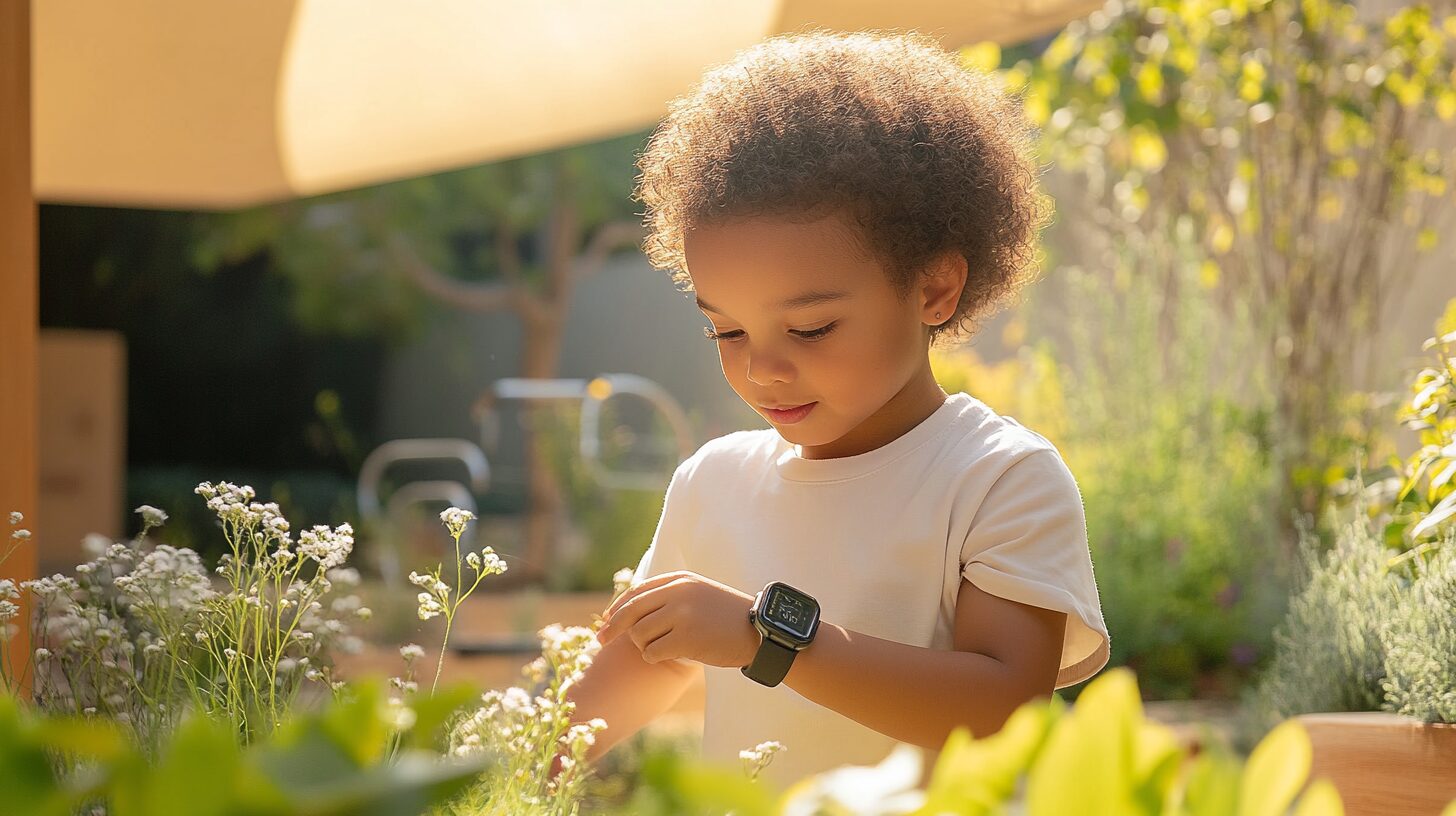In this modern age, technology has made our lives easier and safer in many ways. One such technological advancement is the Global Positioning System (GPS) tracker. These devices are particularly useful for seniors who may be at risk of wandering or getting lost due to conditions like dementia or Alzheimer’s disease. But how accurate are these GPS trackers? Let’s delve into the world of GPS tracking technology and explore its accuracy, especially when it comes to senior safety.
What is a GPS Tracker?
A GPS tracker is a device that uses the Global Positioning System to determine the precise location of a vehicle, person, or other asset to which it is attached. This location information can then be recorded and stored within the tracking unit itself, or transmitted to an internet-connected device using a cellular (GPRS), radio, or satellite modem embedded in the unit.
The tracking data can then be mapped in real-time or analyzed later using GPS tracking software. For seniors specifically, GPS trackers provide peace of mind for both them and their loved ones by ensuring they can always be located if necessary.
GPS trackers are particularly helpful for elderly individuals at risk of wandering due to cognitive conditions. The devices allow caregivers to monitor their location in real time. This ensures if they do wander off, they can be quickly and easily located to prevent any dangerous outcomes.
How GPS Tracking Works
The concept behind GPS tracking might seem complex but it’s actually quite simple. A network of about 32 satellites orbiting Earth send signals down to receivers on the ground. These signals are picked up by your personal device—like a smartphone or a dedicated GPS tracker—which uses this information from multiple satellites to triangulate its own position.
Triangulation is the process of determining the coordinates of a point based on the known location of two other points. In the case of GPS tracking, the known points are the satellites in space. By calculating the distance to at least three satellites through timing signals, a GPS receiver can accurately deduce its location.
The more satellites your device can connect with, the more accurate your location will be pinpointed—a process known as trilateration. In ideal conditions, most consumer-grade devices have an accuracy within 10 meters.
Accuracy of Consumer GPS Trackers
Consumer-grade [GPS trackers](web_url) are generally very accurate because they utilize multi-channel designs and high-sensitivity chipsets. While their performance may not match military or survey-grade GPS receivers, for most consumer applications, they are more than sufficient.
Multi-channel receivers allow the device to connect to multiple satellites simultaneously, improving location calculation. High-sensitivity chipsets enable the tracker to detect even faint satellite signals through obstacles like buildings or dense foliage.
The accuracy of a GPS tracker is measured in meters. Most trackers are accurate to within 10 meters, but some high-end devices can offer better precision and are accurate up to 1 meter. However, the actual accuracy you experience also depends on factors such as satellite geometry, signal blockage, atmospheric conditions, and receiver design features/quality.
For seniors prone to wandering, an accuracy of 10 meters or less provides enough precision to locate them quickly before they travel too far. More expensive trackers with 1 meter accuracy offer even better pinpoint location capabilities.
Factors Affecting GPS Tracker Accuracy
While the signals from the satellite in space are highly accurate, what is received by your device depends on several factors:
- Satellite Geometry/Shading: The position of satellites at any given time can affect accuracy. If the satellites are located in a line or tight grouping (poor geometry), your device may not be able to calculate an accurate location.
- Signal Blockage: Buildings, trees, tunnels, mountains—basically anything that blocks a clear view of the sky can potentially degrade signal quality.
- Atmospheric Conditions: Weather elements such as electrical storms or solar flares can interfere with GPS signals before they reach your receiver.
- Receiver Quality/Design: Devices with poor receiver sensitivity might not pick up weaker signals or accurately process incoming data.
For optimal performance, the device should have a clear line of sight to the sky. Obstructions like dense foliage or being inside a building can interfere with signals. Check the location periodically to ensure tracking accuracy.
Importance of Accuracy for Senior Safety
When it comes to senior safety and well-being, every meter counts. In situations where seniors may wander due to dementia or other cognitive impairments, having an accurate read on their location is crucial for quick recovery. This is why investing in a reliable and precise GPS tracker like Seculife becomes essential for families with elderly loved ones who require additional care and attention.
Wandering is a serious concern for seniors with Alzheimer’s or dementia. Over 60% wander at some point, putting themselves at risk. Even a highly accurate consumer GPS tracker within 10 meters allows caregivers to locate them quickly before the situation escalates. For at-risk seniors, precision tracking can save lives.
GPS Trackers Designed for Seniors
GPS trackers designed specifically for seniors often come equipped with features tailored towards enhancing their safety. These include:
- Fall Detection Alerts: Notify caregivers if the wearer has taken a fall. This allows immediate assistance in case of injury.
- Geofencing Capabilities: Alert when the wearer has left a predefined safe zone. This can help prevent wandering.
- SOS Buttons: Allow the senior to trigger emergency alerts when needed.
One such device is the Seculife GPS tracker. Designed with seniors in mind, it provides real-time tracking and instant alerts to ensure the safety of your loved ones at all times.
The Seculife tracker is lightweight, easy to wear, and includes handy features like fall detection and emergency notifications. For elderly users, the simple one-touch SOS button offers added peace of mind.
Seculife GPS Tracker Accuracy
The Seculife GPS tracker offers high-precision tracking with an accuracy of up to 1 meter. This level of precision ensures that you can locate your elderly loved one quickly and accurately, even in densely populated urban areas or complex indoor environments.
With 1 meter accuracy, the Seculife device provides reliable, pinpoint tracking indoors and out. This significantly cuts down on recovery time if a senior with cognitive impairment wanders off. For maximum effectiveness, ensure the unit has a clear view of the sky and check the battery level regularly.
Battery Life and Consistent Tracking
Battery life plays a crucial role in maintaining consistent tracking. The longer the battery life, the less frequently the device needs to be charged, reducing the risk of losing track of your loved one due to a dead battery.
The Seculife GPS tracker boasts an impressive battery life of up to 3-5 days on a single charge. This provides reliable 24/7 monitoring without frequently recharging the device. Set reminders to check the battery level so it doesn’t go dead without you noticing.
GPS Tracker Limitations
While GPS trackers offer numerous benefits, they do have limitations. For instance, they rely heavily on clear sky visibility for optimal performance—this means their effectiveness can be compromised in dense forests or urban areas with tall buildings.
Also, while most devices are water-resistant, they may not function as effectively when submerged in water. It’s important to consider these factors when choosing a device for your senior loved one.
To ensure reliable tracking, remind the senior user to avoid heavily wooded areas or being inside large buildings for extended periods. Water resistance also varies, so check the IP rating before exposure to moisture.
Choosing the Right GPS Tracker
When selecting a GPS tracker for an elderly family member, consider their specific needs and lifestyle. Important features to look for include:
- Fall Detection Sensors: Alert caregivers if a dangerous fall occurs so immediate assistance can be provided.
- SOS Button: Allows the senior to easily call for help if injured or in distress.
- Long Battery Life: Look for trackers that can run for days without recharging to avoid losing the signal.
- Simple Interface: Large, easy-to-use buttons ensure the senior user can operate the device without difficulty.
Prioritize trackers designed specifically for the elderly, as these include senior-friendly features like fall alerts and SOS buttons for added safety. Also ensure to consider battery life, charging routine and any potential limitations of the device based on the senior’s lifestyle and needs.
In conclusion, modern high-accuracy GPS trackers like the Seculife are invaluable tools for families caring for seniors with cognitive conditions like Alzheimer’s or dementia. They provide reliable tracking that can quickly locate loved ones who wander while also offering features that enhance safety and independence. When selecting a GPS tracker, keep the senior’s unique needs in mind and ensure the solution matches their lifestyle. With proper utilization, these devices grant much-needed peace of mind.





